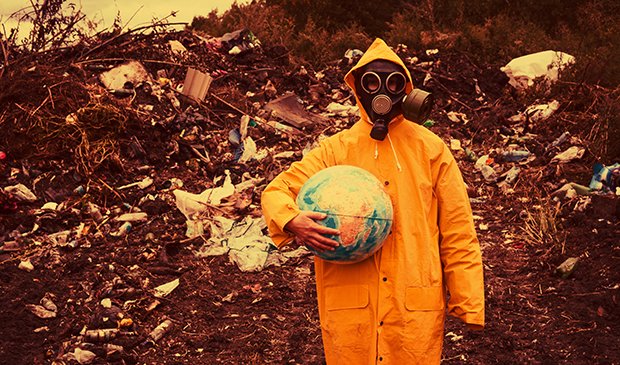Pause for thought
BEYOND 2020: C21 editor-in-chief David Jenkinson kicks off a series of articles highlighting the imperatives for 2021 and suggests this year might be our best chance to bring about positive change across the board.

David Jenkinson
“David’s liberal metropolitan elite rant is saved as a draft on site,” came back the note from the chief sub after I filed this article for publication. I had to smile. Because, of course, it’s true. It’s innate to the issue, that having the time to consider change is often the preserve of the comfortable. Everyone else is just trying to get there.
Nevertheless, like most people I’ve spent the past year marvelling at how the narrative of real life has delivered storylines that would be unbelievable in most dramas.
A cast of fools, from the monstrous Trump to the calamitous Johnson, filled our screens with nonsense while the real heroes on the front line battled against their incompetent, misguided rhetoric.
There was plague, war, pestilence, famine and even a Book of Exodus swarm of locust that covered Somalia, Ethiopia and Kenya in numbers that haven’t been seen in a quarter-century.
The events of 2020 made it more clear than ever that we are heading towards oblivion, and need to do something about it fast.
C21 took a three-week break over the holiday period to allow the team to relax and recharge after a gruelling year. I spent a lot of time reflecting on 2020 and thinking about the year to come. How would things be different? What changes would come? What would the business look like? And what would our company’s role be in a post-2020 future?
Just to lighten the mood, while I had little else to do, my wife (who is currently taking an MSC in Sustainable Food and Natural Resources) suggested I read Less Is More by Jason Hickel. So I did.
The book starts with a quote from the American novelist and environmental activist Wendell Berry, who, considering how to solve the climate emergency, suggests: “We don’t have the right to ask whether we are going to succeed or not. The only question we have a right to ask is ‘what’s the right thing to do?’ What does this Earth require of us if we want to continue to live on it?”
The context for this is, of course, that we’re at crisis point. Those in the know are trying their best to educate the rest of us about the fact we are rushing headlong into the sixth mass extinction, defined as a loss of 75% of all species on the planet over a geologically short interval. This is normally millions of year, but we’re so ‘advanced’ now we can probably manage it in 100!
They tell us again and again that it is estimated 20% of all species are in danger of extinction over the next few decades. That we are already on the path towards a sixth major extinction now seems scientifically undeniable.
In January, just to lighten the mood a bit more, 17 experts wrote a report in Frontiers in Conservation Science full to confirm the planet is facing a “ghastly future of mass extinction, declining health and climate-disruption upheavals” that threaten human survival because of ignorance and inaction. They warned that we still haven’t grasped the urgency of the biodiversity and climate crises.
Yeah, but who won Love Island?

Time to take the emphasis off profit and continual growth
The report went on to say that with population growth, humanity’s consumption as a fraction of Earth’s regenerative capacity has grown from 73% in 1960 to 170% in 2016, with substantially greater per-person consumption in countries with the highest income. With Covid-19, this overshoot dropped to 56% above Earth’s regenerative capacity, which still means that between January and August 2020 humanity consumed as much as Earth can renew in an entire year.
And we see it everywhere. In the 1980s, Arctic sea ice covered about seven million square kilometres. It now covers four million. Snorkels out! And since 1970 the number of birds, mammals, reptiles and amphibians has dropped by more than half and a quarter of all species are at risk of extinction. And as we all know, everything is connected, so when collapse happens, it happens to us all.
Shorthand: we’re fucked.
Meanwhile, back in the sitting room, the Western world settled back to fart its way through It’s A Wonderful Life yet again, surrounded by mountains of discarded plastic presents and uneaten holiday fancies. What could possibly go wrong?
But back to this book. Less Is More is an essay on degrowth, proposing that in order for the planet to survive we need to adjust our approach to lots of things, mainly foregrounding other metrics of success ahead of profit and continual growth. Hickel suggests there is a way back if we change, like shortening the working week as a significant start. But change is needed, and needed fast.
It’s a compelling read. I’d recommend you get yourself a copy.
So what’s all this got to do with television? That’s the point isn’t it? ‘What’s it got to do with us? What’s it got to do with me?’ is the problem. Many would suggest it has everything to do with you and me, yet few of us take responsibility for it.
Making television and running businesses that don’t recognise we are living on a terminally ill planet really does now seem like rearranging the deckchairs on the Titanic.
There were significant moves forward in television in 2020. Black Lives Matter prompted a rush to inclusivity in the board rooms of the entertainment business, many started to tire of the role media played in fuelling populism and further progress was made beyond the Me Too movement to influence change.
The pandemic also forced us all to pause for thought and recognise that we can do things differently when required.
In 2021, perhaps we have a brief window of opportunity to habitually reprogram how we operate, communicate, tell stories, make television, transact business and much more, in order to help save this planet we live on. Without which, the rest doesn’t really matter.
There has never been a more important moment for the content business to help influence change. But if we don’t do it now, as part of the ‘new normal’ reset, the opportunity will be lost forever.
In our own liberal elite corner of the content world, C21 will be focusing the first quarter of this year on figuring out how to become a better part of the solution. We can’t do everything but we can do something, and we’ve not worked hard enough on this in the past.
That is our resolution for 2021.
I’m sure there will be lots of learning and lots of hard decisions to make, but also lots of exciting opportunities to embrace. The alternative is not an option.
Happy new year.
Sandals on.
This is a year for change. Let’s make the most of it.
Check out all the articles in C21’s Beyond 2020 season here.













.jpg)




























